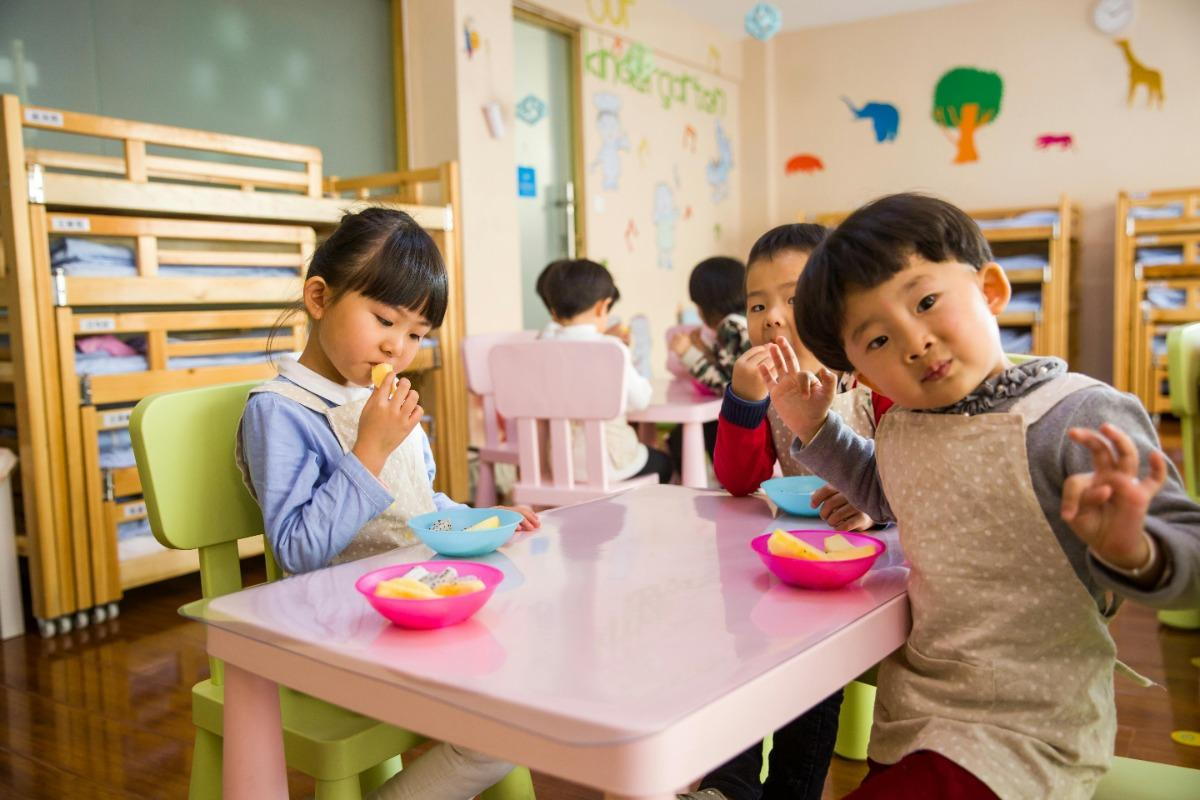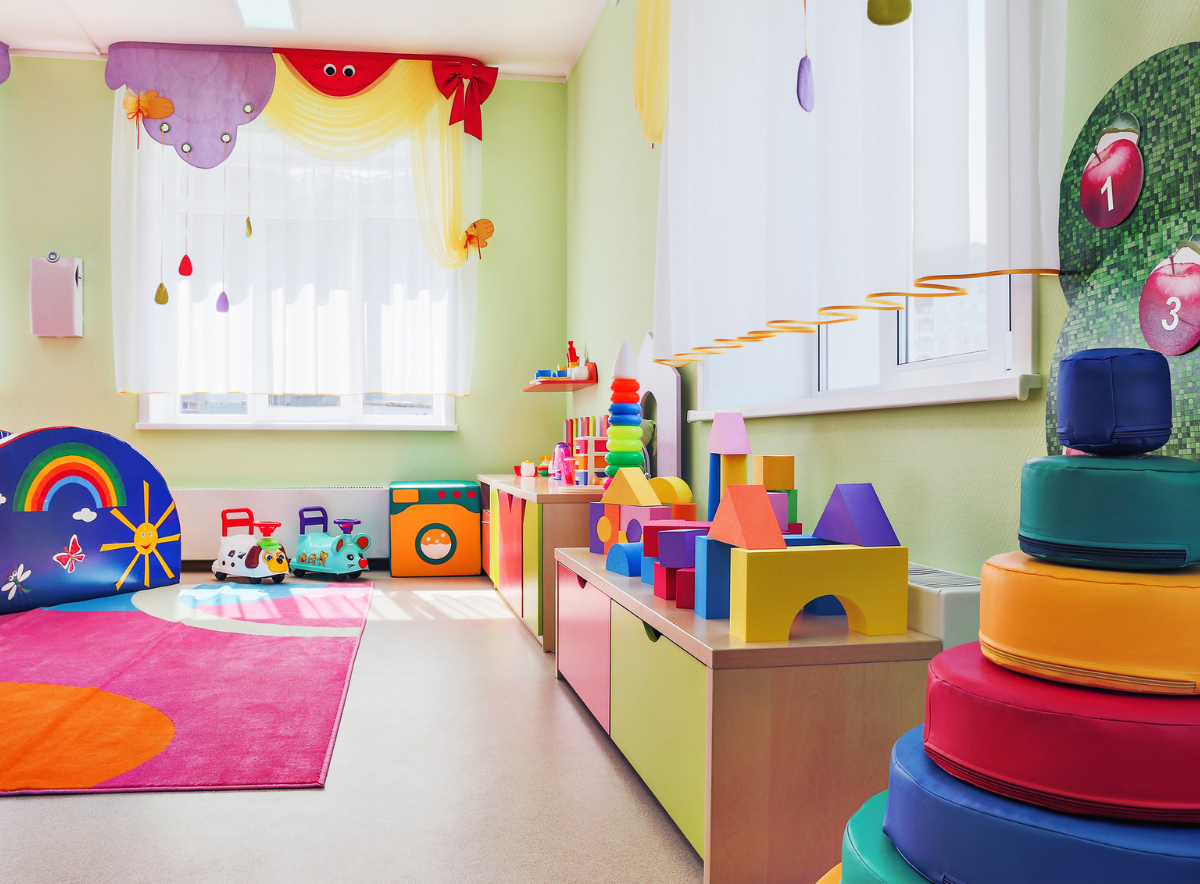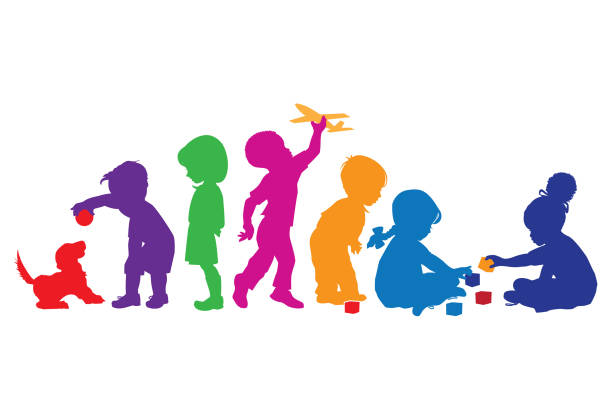What To Look For When Evaluating A Child Care Center Near You
Wiki Article
The Function of DAYCARE in Fostering Social Skills and Very Early Learning
Day care acts as a considerable setting for young kids, helping with important social interactions that promote early learning. In this organized setting, youngsters engage with peers and caregivers, developing important communication and participation skills. As they navigate play and numerous tasks, they learn to settle disputes and build emotional intelligence. Comprehending the subtleties of these communications exposes the extensive influence daycare has on a child's development, shaping their future relationships and scholastic readiness. What certain abilities do youngsters get in this setting?The Value of Social Interaction in Childcare
While several moms and dads recognize the importance of early childhood education and learning, the role of social communication in childcare is commonly underestimated. Day care settings provide children with very useful possibilities to involve with peers, promoting important social abilities. During these formative years, children find out to navigate numerous social dynamics, such as sharing, teamwork, and dispute resolution. Communicating with diverse age teams and individualities improves their capability to adapt to various environments and create empathy in the direction of others.
Structure Interaction Skills With Play
Play acts as a powerful tool for children to develop important communication abilities in daycare settings. Through various play tasks, youngsters talk, express their thoughts, and find out to listen to others. Role-playing video games, for instance, motivate them to make use of language in various contexts, advertising vocabulary expansion and understanding of social cues.
Furthermore, storytelling throughout playtime enables youngsters to communicate emotions and concepts, assisting them develop narrative abilities and self-confidence in their spoken expressions. Generally, play not only serves as a pleasurable activity yet additionally as a vital system for establishing the interaction abilities necessary for successful social communications in later life.
Urging Cooperation and Team Effort
Collaboration and synergy are vital skills that youngsters can cultivate in daycare settings. Through different group tasks, such as developing jobs or collaborative games, kids learn to share obligations and work toward usual goals. These communications foster an understanding of the relevance of listening to others, negotiating duties, and jeopardizing when required.In childcare setups, caregivers often produce opportunities for children to take part in synergy by motivating them to take part in team tasks. This not just assists kids establish social bonds but additionally grows a feeling of belonging and community.
As they browse these cooperative experiences, youngsters obtain beneficial understandings right into the characteristics of dealing with peers. They learn to value diverse viewpoints and identify that each member adds distinctively to the group initiative. Inevitably, these very early lessons in cooperation and synergy prepared for much healthier partnerships and efficient collaboration in future social and scholastic settings.
Structured Knowing Activities and Cognitive Development
Structured learning activities play an integral duty in cultivating cognitive advancement in kids (Child Care Near Me). These tasks, that include challenges, narration, and Check Out Your URL hands-on experiments, stimulate important thinking and problem-solving abilities. In a childcare setting, organized discovering urges kids to involve with their peers, improving their capability to procedure details and comprehend numerous ideas
Via assisted play and interactive jobs, youngsters develop fundamental skills such as numeracy and literacy. Tasks focused around numbers can help kids comprehend mathematical principles, while narration improves language acquisition and comprehension. Furthermore, structured understanding allows educators to assess developing development and dressmaker tasks to specific discovering demands.

Incorporating a diverse array of organized tasks not just promotes cognitive growth however additionally prepares kids for future academic success. By providing a well balanced setting that promotes exploration and inquiry, childcare programs play a crucial function in forming the cognitive capacities of young students.
Promoting Psychological Knowledge and Confidence
Psychological knowledge and self-confidence are crucial parts of a kid's development, enhancing the cognitive abilities cultivated with structured discovering activities. In daycare setups, youngsters are offered with opportunities to share their feelings and take part in social interactions, which are critical for constructing emotional understanding. Via led play and group tasks, youngsters discover to recognize their feelings, identify those of others, and establish empathy.Communication with peers and caregivers assists to grow self-esteem and strength. Favorable support and motivation from grownups empower kids to take risks and face obstacles, fostering a feeling of success. As they browse social dynamics, kids construct confidence in their abilities to interact, work together, and resolve disputes - Child Care Center. This caring atmosphere permits for the steady development of psychological intelligence, which is crucial for future interpersonal connections and general wellness. Therefore, childcare plays a significant duty in fostering both emotional intelligence and confidence in little ones
Often Asked Inquiries
Just How Can Moms And Dads Pick the Right Daycare for Their Youngster?
Moms and dads need to consider elements such as area, team qualifications, safety standards, curriculum, and assesses from various other moms and dads when picking the ideal daycare for their child, ensuring it aligns with their child's developmental needs and family values.
What Age Is Best for Beginning Day Care?

Just How Does Daycare Influence Children's Habits in the house?
Day care frequently favorably influences youngsters's behavior in your home by improving social skills, promoting self-reliance, and motivating psychological regulation (Child Care Center). Because of this, children may show better communication and teamwork, leading to more harmonious household characteristicsAre There Any Drawbacks to Childcare Participation?
Yes, look at here now there are downsides to daycare participation, consisting of prospective splitting up stress and anxiety, direct exposure to ailments, and irregular caregiving. These elements can impact a kid's psychological health and change at home, impacting overall family dynamics.Just How Can Moms And Dads Assistance Social Abilities Discovered at Day Care?
Moms and dads can sustain social abilities discovered at childcare by assisting in playdates, urging participating tasks, modeling favorable communications, talking about feelings, and reinforcing sharing and communication at home, consequently enhancing their kid's social development and self-confidence.Childcare serves as a substantial setting for young kids, promoting essential social communications that advertise very early learning. Daycare setups give youngsters with invaluable possibilities to involve with peers, promoting vital social abilities. Play offers as an effective tool for youngsters to develop important interaction skills in daycare setups. In day care setups, youngsters are offered with opportunities to share their feelings and engage in social communications, which are essential for developing emotional understanding. Day care typically positively affects children's habits at home by improving social abilities, promoting independence, Resources and motivating emotional regulation.
Report this wiki page